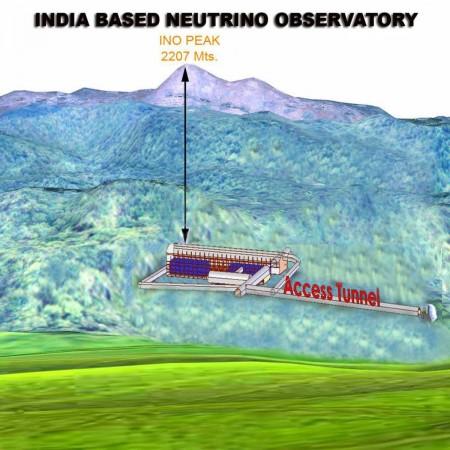
India will get its own neutrino detector as part of a worldwide network of neutrino factories and detectors set up to research particle physics and carry out experiments. The detector is planned to be built in a village called Pottipuram near the Tamil Nadu-Kerala border.
The India Neutrino Observatory (INO) project will have an underground laboratory complex and tunnels leading to the campus. A massive cavern will house the detector and is expected to be about 130 meters long, 26 meters wide, and 30 meters high, reports BusinessLine. The detector will be a 50 kiloton "Magnetized Iron Calorimeter". The facility will be buried deep within the Western Ghats about 2,207 meters below the mountain tops.
Two other, smaller caverns will also be built for the project that will conduct experiments to detect and study dark matter and hold a neutrino double detector. The approach to these facilities will be through a two-kilometer-long tunnel, notes the report.
Once this complex is completed, India will join a select few countries in the world that already have neutrino detectors. Canada, Japan, and Italy have underground complexes, while France has one in the Mediterranean Sea. There is also a neutrino detector at the Amundsen-Scott South Pole Station in Antarctica, notes the report.
The INO project will be headed by Tata Institute of Fundamental Research, which will also serves as the nodal institution. The construction of the site will be carried out in collaboration with the department of atomic energy and the department of science and technology, according to the report.
There are reports of local people living in the area opposing this plan to build a research facility in the mountains. The concern is that it could possibly lead to chemical leaks, radiation, structural damage to the mountains as well as being dangerous to the animal and plant diversity in the region. However, scientists have rubbished all these claims, notes the report.
What are neutrinos?
Known as the smallest particles in the universe, neutrinos are known to be able to pass through any kind of matter without slowing down. This is one of the reasons why most detectors are based deep underground where other forms of cosmic radiation cannot get through. The proposed INO, for example, is almost under two kilometers of rock. Neutrinos are so small and move so fast that nothing can stop them. In a National Geographic documentary, astrophysicist Neil deGrasse Tyson explained that a neutrino could "pass through a hundred light years of steel without even slowing down".














